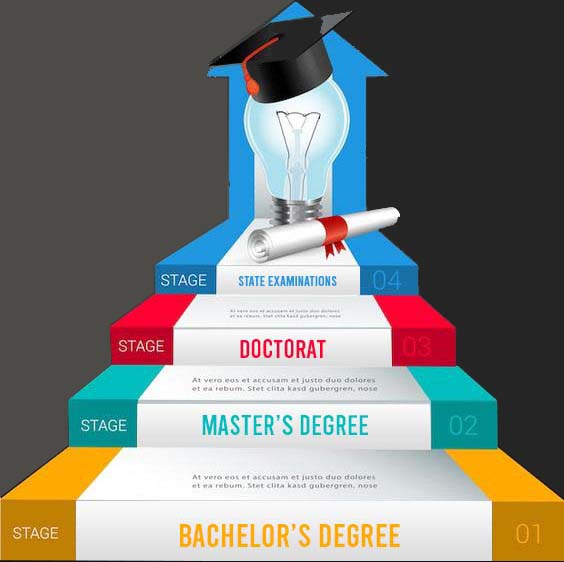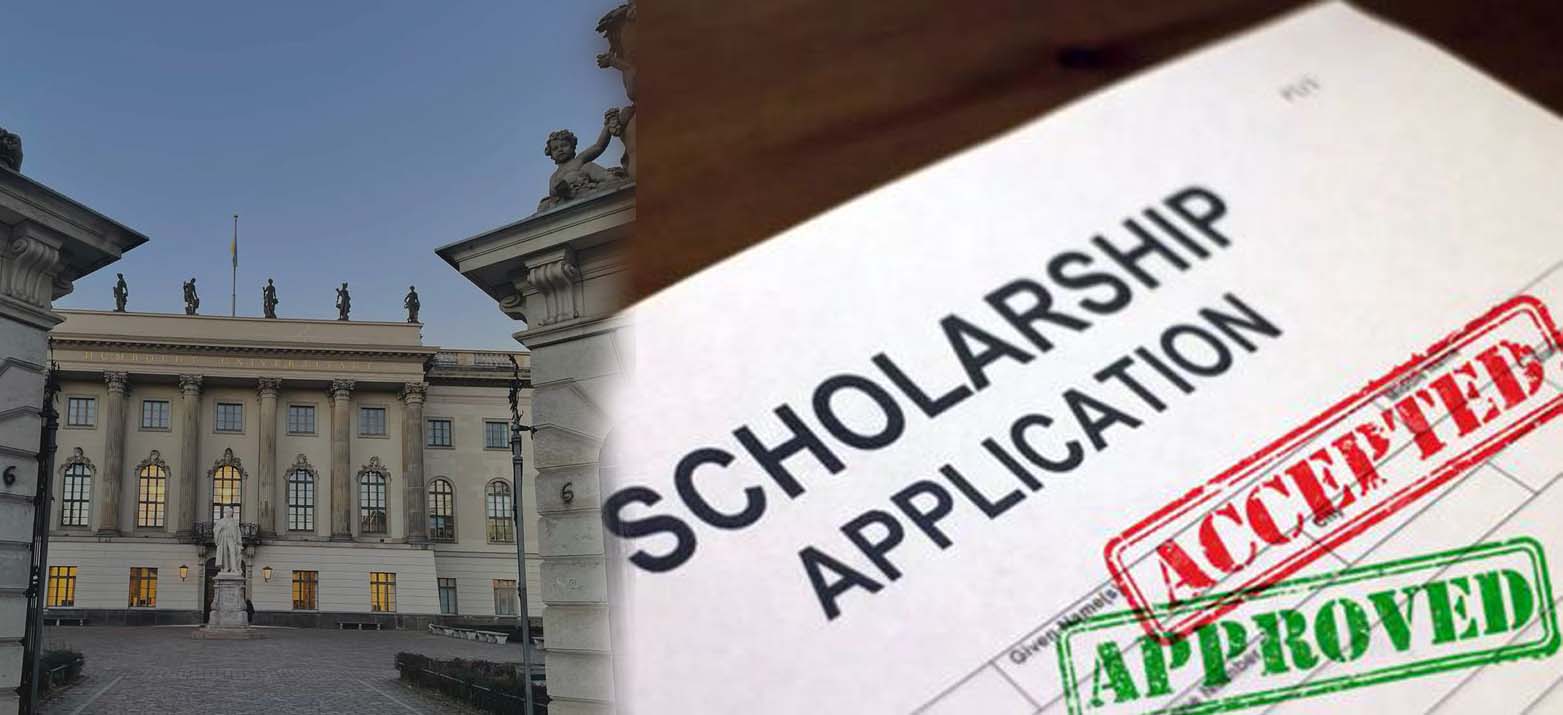- Call: +91-9566252166
- Mail: hands@learnerscortex.com

German Higher Education
Germany is renowned for its high-quality education system, which is characterized by a diverse range of institutions and programs. German universities are known for their strong emphasis on research, innovation, and practical training, making them a popular destination for students from around the world.

Types of Higher Education Institutions

- Focus on theoretical and research-oriented education.

- Universities of Applied Sciences

(Kunst- und Musikhochschulen)

Combine academic study with practical training
Types of Higher Education Institutions


- Typically lasts three to four years.
- Covers foundational and specialized subjects in a chosen field of study.
- Requires completion of coursework, exams, and a thesis.

Requires a Bachelor’s degree for admission. Usually lasts one to two years. Offers advanced knowledge and research opportunities in a specific area. Includes a combination of coursework, exams, and a Master’s thesis.

Involves independent research leading to a dissertation. Duration varies, generally taking three to five years. Supervised by a university professor and often involves working as a research assistant.
Last updated 3 mins ago

Required for certain professional fields such as medicine, law, and teaching. Comprises rigorous exams set by the state after the completion of a university program.
Key Features of the German Education System
Most public universities in Germany do not charge tuition fees for undergraduate and many postgraduate programs. Students may need to pay a nominal semester fee covering administrative costs, public transportation, and student services.
German universities are renowned for their rigorous academic standards and strong emphasis on research and innovation. Institutions frequently rank highly in international university rankings.
Germany is a global leader in research, with universities collaborating with industry and research institutions. Students have access to state-of-the-art facilities and funding opportunities for research projects.
German universities attract a large number of international students, offering numerous programs in English. They provide robust support systems including language courses, integration programs, and student advisory services.
Combines academic education with vocational training. Provides students with practical experience and direct entry into the job market.

Opportunities for International Students

The German universities offer various scholarships are available to international students,
including those offered by the German Academic Exchange
Service (DAAD) and individual universities. These scholarships often cover tuition,
living expenses, and travel costs.

International students can work part-time during their studies and full-time during semester breaks. After graduation, students can apply for an 18-month residence permit to seek employment in their field.

Germany’s strong economy and low unemployment rate provide excellent job prospects for graduates. The country’s need for skilled professionals, particularly in engineering, IT, and healthcare, offers ample opportunities for international graduates.

Graduates who secure a job in their field can apply for a Blue Card, which can lead to permanent residency. Germany’s welcoming policies for international talent make it an attractive option for those seeking to build a career and life in Europe.
The primary student visa categories for Germany include:
i) Student Applicant Visa (Visum zur Studienbewerbung):
For students who need to apply for admission in person or need to fulfill prerequisites.
ii) Student Visa (Visum zu Studienzwecken):
For students who have been accepted to a German university or preparatory college (Studienkolleg).
The steps to apply for a German student visa include:
1. Secure University Admission:
Obtain an admission letter from a recognized German university.
2. Book an Appointment:
Schedule an appointment with the German Embassy or Consulate.
3. Prepare Required Documents:
Gather all necessary documents for the visa application (see below).
4. Attend Visa Interview:
Submit your documents and attend an interview at the German consulate or embassy.
5. Pay Visa Fee:
Pay the visa processing fee.
6. Await Decision:
Wait for the visa decision, which may take up to 25 days or longer.
The typical documents required for a German student visa include:
i) Valid Passport: With a validity that extends at least three months beyond the intended stay.
ii) Passport Photos: Biometric photos according to German visa specifications.
iii) University Admission Letter: Proof of acceptance from a German university.
iv) Proof of Financial Resources: Evidence showing you can cover your living expenses (at least €11,208 per year). This can be a blocked account, scholarship, or sponsorship letter.
v) Health Insurance: Proof of valid health insurance coverage.
vi) Academic Transcripts: Certificates and transcripts from previous studies.
vii) Motivation Letter: Stating your study plans and motivation.
viii) Visa Application Form: Completed and signed application form.
ix) Proof of Accommodation: Evidence of where you will be staying in Germany.
x) Language Proficiency Proof: Certification of German or English language proficiency, depending on your course.
i) You can prove financial stability by opening a blocked account in Germany (Sperrkonto) with a deposit of €11,208, which allows you to withdraw a limited amount each month for living expense
ii) Scholarship Award Letter: Proof of scholarship covering your living expenses.
iii) Formal Obligation Letter (Verpflichtungserklärung): A letter from a resident in Germany who will support you financially.
iv) Bank Statements: Showing sufficient funds or regular income.
You should apply for your student visa as soon as you receive your university admission letter and ideally at least 3 months before your planned departure to Germany.
The processing time for a German student visa typically ranges from 4 to 12 weeks. However, it can vary depending on the specific embassy or consulate and the time of year.
Language requirements depend on your course of study. If your program is in German, you will need to demonstrate German proficiency, usually through tests like TestDaF or DSH. If your program is in English, you must show proficiency in English, commonly through tests like IELTS or TOEFL.
Yes, international students can work part-time in Germany:
i) During Semesters: Up to 120 full days or 240 half days per year.
ii) During Breaks: Full-time during semester breaks.
iii) On-Campus Jobs: No restrictions, as long as it does not interfere with your studies.
If your visa application is denied, you will receive a letter explaining the reasons. Common reasons include insufficient financial proof, incomplete documents, or failure to demonstrate ties to your home country. You can reapply by addressing the issues mentioned in the denial letter.
Yes, you can bring your spouse and minor children to Germany. They will need to apply for their visas and demonstrate that they have sufficient financial resources and health insurance. The process may require proof of accommodation and your relationship to the dependents.
A blocked account is a special type of bank account required for international students to demonstrate financial stability. It restricts the amount of money you can withdraw each month. You can open a blocked account with several banks, such as Deutsche Bank or online services like Expatrio or Fintiba.
Health insurance is mandatory for all students in Germany. You must provide proof of health insurance when applying for a visa. You can either opt for public or private health insurance. Public insurance is typically more affordable for students and covers a wide range of services.
Yes, with a German student visa, you can travel within the Schengen Area without needing additional visas. The Schengen Area includes 26 European countries that have abolished passport control at their mutual borders.
If you need more time to complete your studies, you must apply for a visa extension at the local Foreigners' Registration Office (Ausländerbehörde). You will need to provide updated proof of financial resources, health insurance, and academic progress.
After completing your studies, you can apply for an 18-month residence permit to look for a job related to your field of study. Once you secure employment, you can transition to a work visa or an EU Blue Card, leading to potential permanent residency.
i) The academic requirements include: University Admission Letter which is a proof of admission from a recognized German institution.
ii) Previous Qualifications: Certificates, diplomas, or transcripts from prior education.
iii) Language Proficiency: Certification of proficiency in the language of instruction for your course.
You can schedule an appointment through the website of the German Embassy or Consulate in your area. The appointment booking system will guide you through selecting a date and time and provide a list of documents you need to bring.
A motivation letter explains your reasons for studying in Germany and your chosen program. It should include:
- Your academic and professional background.
- Reasons for choosing the specific university and program.
- Your future career goals.
- How the program aligns with your goals.
If you lose your passport, you must:
1. Report the loss to the local police and obtain a police report.
2. Contact your embassy or consulate to get a new passport.
3. Apply for a new visa at the German consulate with the required documents.
Indian students must follow the standard procedures for student visa applications.
However, they may also need to provide additional documentation, such as:
- Academic transcripts authenticated by the issuing institutions.
- Proof of financial stability meeting the German standards.
- Proof of health insurance valid in Germany.
